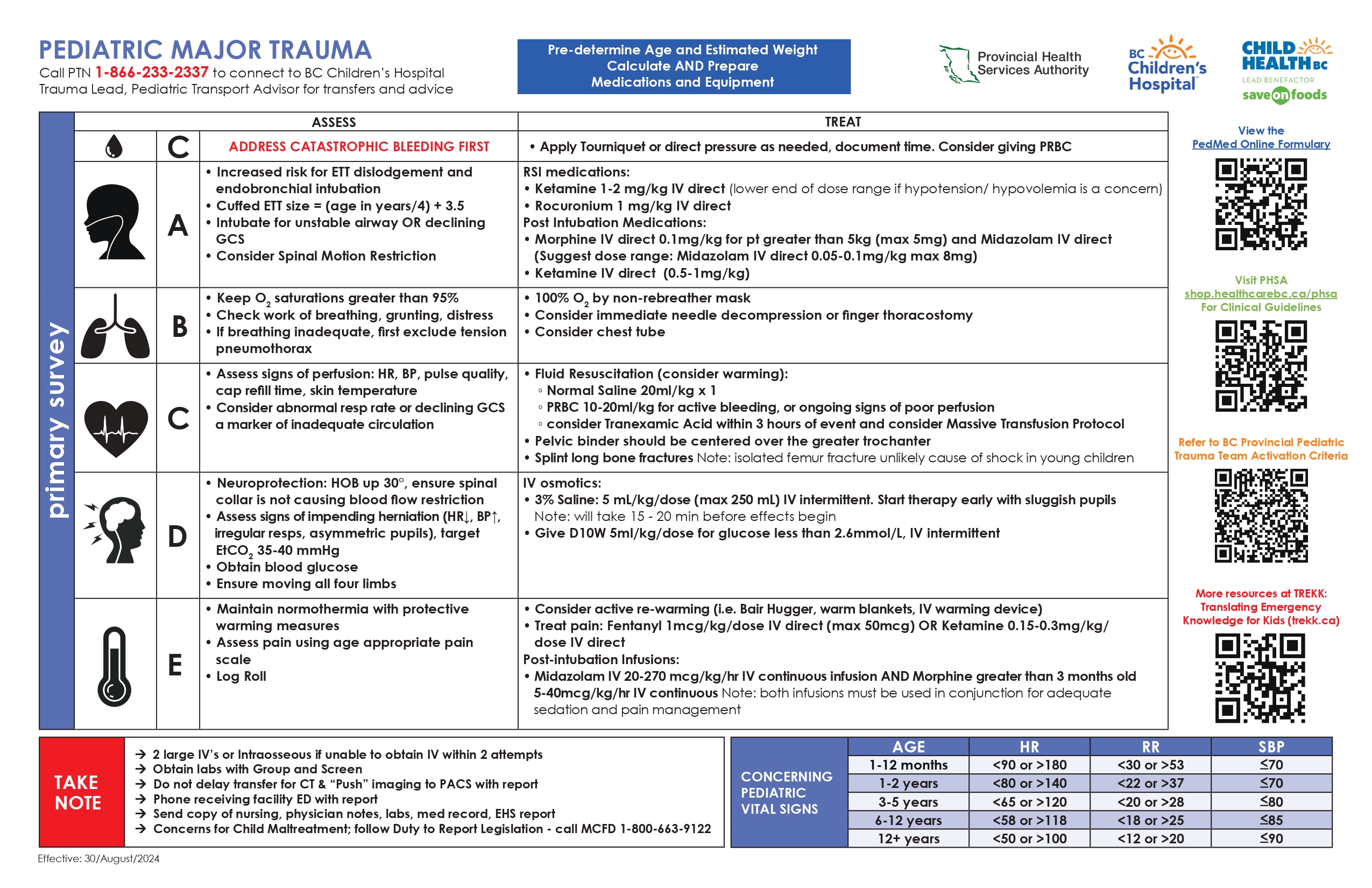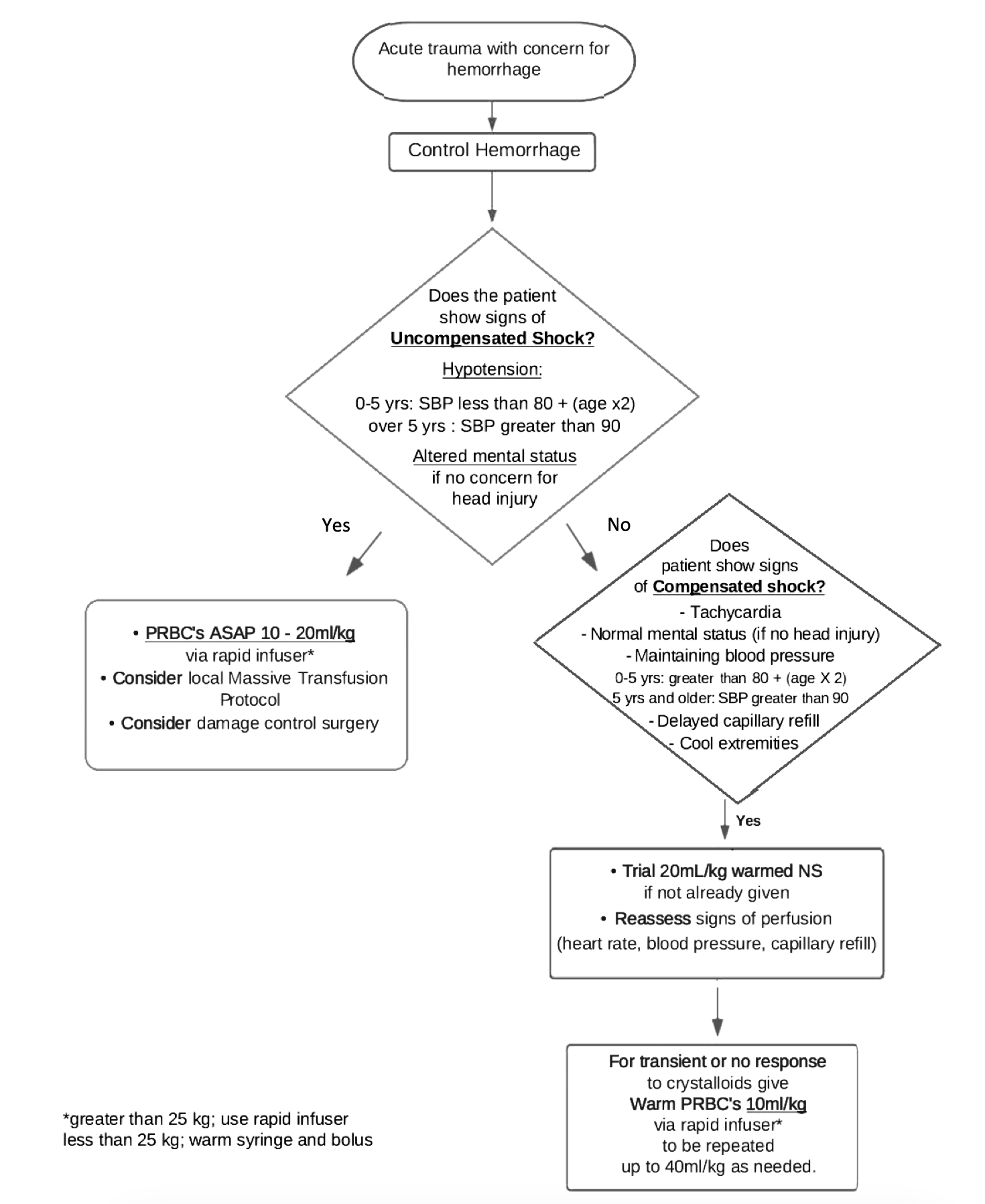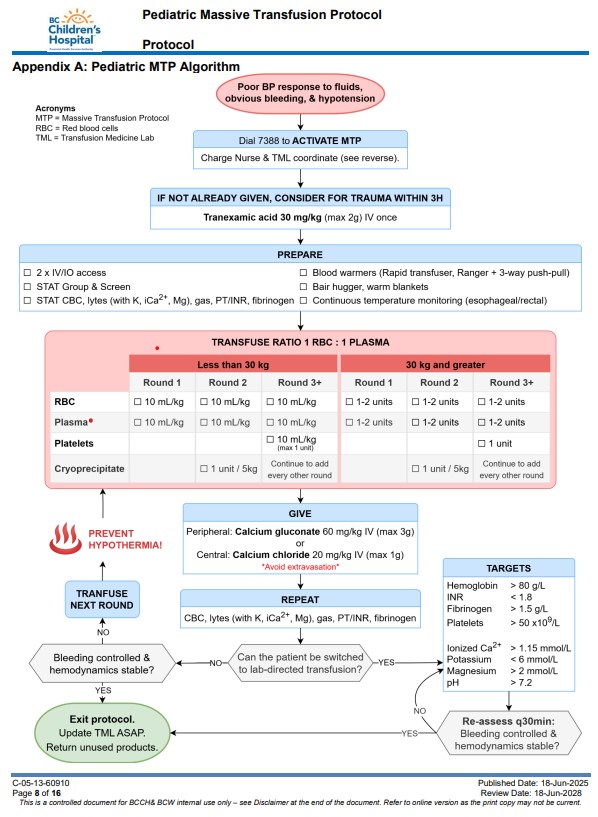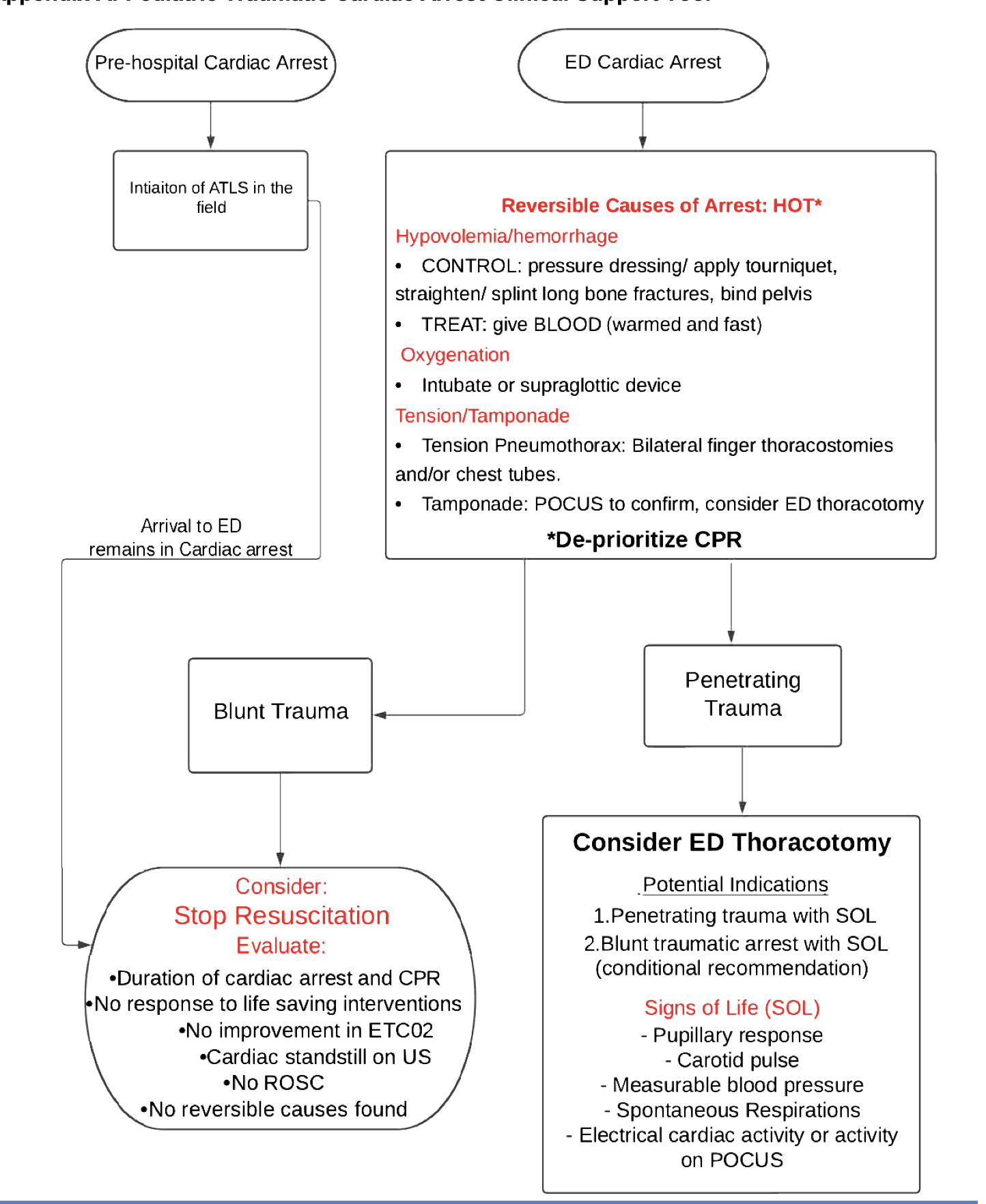Summary
INITIAL MANAGEMENT
- Cardiorespiratory monitoring; 100% 0 2 by non-rebreather mask
- 2 large-bore antecubital IVs; IO access if 2 failed IV attempts
- Trauma labs :
- Type & Screen
- Complete Blood Count (CBC)
- Electrolytes, BUN, Creatinine
- Liver Function Tests (LFT)s
- Amylase/lipase
- Lactate
- Fibrinogen
- INR/PTT
4. Point of Care Testing (POCT) glucose if Loss Of Consciousness (LOC); if glucose < 2.6 mmol/L, give D10W 5 mL/kg IV push; recheck glucose in 5 min

- ALERT Pediatric Referral Center EARLY
- Arrange for Critical Care Transport
- Resuscitate before intubation
- Avoid hypoxia, hypotension and hyper/hypocarbia
- Do NOT rely on hypotension as marker of shock in kids
- If signs of shock: limit crystalloid and initiate blood early
- Prevent hypothermia
Child Health BC. Pediatric Major Trauma [Internet]. 2024. Available from: https://www.childhealthbc.ca/trauma/pediatric-major-trauma-poster
Trauma Fluid Resuscitation

CW Emergency Department – Trauma Manager. PEDIATRIC TRAUMA FLUID RESUSCITATION [Internet]. Available from: https://shop.healthcarebc.ca/phsa/BCWH_2/BC%20Children%27s%20Hospital/C-05-01-62393.pdf.
Pediatric Massive Transfusion Protocol

BC Children's Hospital. Pediatric Massive Transfusion Protocol [Internet]. 2023. Available from: https://shop.healthcarebc.ca/phsa/BCWH_2/BC%20Children%27s%20Hospital/C-05-13-60910.pdf
Cardiac Arrest in Trauma

BCCH Emergency Department – Trauma Manager. PEDIATRIC TRAUMATIC CARDIAC ARREST CLINICAL SUPPORT TOOL [Internet]. 2022. Available from: https://shop.healthcarebc.ca/phsa/BCWH_2/BC%20Children%27s%20Hospital/C-05-01-60085.pdf.